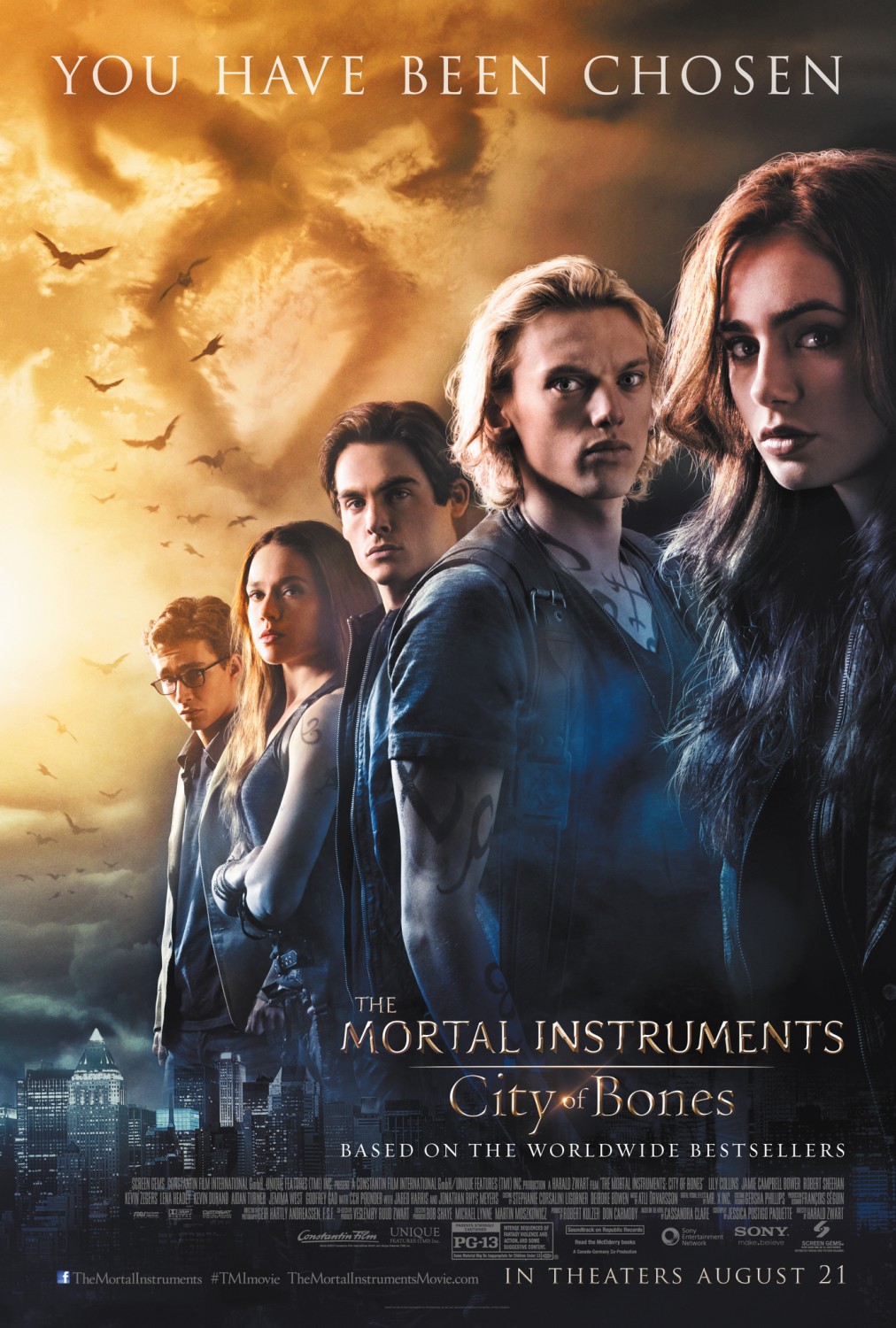 |
| eonline.com |
Why are they so big and why do so many of them fail?
The only thing that may rule the roost at the box office more than superhero movies and animated features is adaptations of Young Adult fiction.
Maybe they've always been around and we haven't recognized it, maybe a series of cultural factors have converged within the last generation or so leading to their modern boom or maybe they're a fad that will burn out like other genres before them. Whatever the reason, "Harry Potter and the Sorcerer's Stone" hit almost 13 years ago and in its aftermath, Hollywood was never the same.
After several years of chasing Rowling's success, new properties have risen to the throne and run their course but the one consistent that they all seem to have in common at this point in time is that in terms of popularity, "Harry Potter" "Twilight" and "The Hunger Games" have stood tall above the rest and the pretenders that follow have yet to come even close to their success.
Maybe they've always been around and we haven't recognized it, maybe a series of cultural factors have converged within the last generation or so leading to their modern boom or maybe they're a fad that will burn out like other genres before them. Whatever the reason, "Harry Potter and the Sorcerer's Stone" hit almost 13 years ago and in its aftermath, Hollywood was never the same.
After several years of chasing Rowling's success, new properties have risen to the throne and run their course but the one consistent that they all seem to have in common at this point in time is that in terms of popularity, "Harry Potter" "Twilight" and "The Hunger Games" have stood tall above the rest and the pretenders that follow have yet to come even close to their success.
But what is it about these franchises that fascinate us so?
Why do the imitators fail to measure up in terms of success by the standing of
the audiences if nothing else?
I can only theorize that the properties in question offered an experience for a young audience fond of storytelling that generations of the past may have been unfortunately not privy to.
I can only theorize that the properties in question offered an experience for a young audience fond of storytelling that generations of the past may have been unfortunately not privy to.
While “Harry Potter”started with a very lighthearted atmosphere and a detailed story of escapism featuring a boy leaving behind a wold that doesn't understand him in favor of one heralding him as a savior while putting all of his actions on a pedestal, it continues on long enough to grow and transform into something else.
By the time the entire story reached its conclusion, it had matured into a war story deconstructing the romantic side of "The Hero's Journey" tale that it had started out as.
Perceptions of quality aside, "Twilight" presented something of a modern harlequin romance to a younger uninitiated audience, presenting them with something for an older audience in a softer and more identifiable fashion while spinning a supernatural twist on it. Additionally, "Twilight" also provided the very large female portion of the YA reading crowd with a protagonist that falls within their demographic for the first time cinematically.
Piggybacking off of the draw of "Twilight's" protagonist, "The Hunger Games" goes one step further by providing far more complexity and substance while also establishing its heroine as a legitimate action hero to boot, something infrequently seen even in most stories.
What is it about these sweet spots of entertainment that cinematic imitators have regularly failed to capture? With the impeding release of the first half of "The Hunger Games" grand finale, what better a time to find out, starting with the most high profile YA failure to reach mass audiences in recent history.
By the time the entire story reached its conclusion, it had matured into a war story deconstructing the romantic side of "The Hero's Journey" tale that it had started out as.
Perceptions of quality aside, "Twilight" presented something of a modern harlequin romance to a younger uninitiated audience, presenting them with something for an older audience in a softer and more identifiable fashion while spinning a supernatural twist on it. Additionally, "Twilight" also provided the very large female portion of the YA reading crowd with a protagonist that falls within their demographic for the first time cinematically.
Piggybacking off of the draw of "Twilight's" protagonist, "The Hunger Games" goes one step further by providing far more complexity and substance while also establishing its heroine as a legitimate action hero to boot, something infrequently seen even in most stories.
What is it about these sweet spots of entertainment that cinematic imitators have regularly failed to capture? With the impeding release of the first half of "The Hunger Games" grand finale, what better a time to find out, starting with the most high profile YA failure to reach mass audiences in recent history.

No comments:
Post a Comment